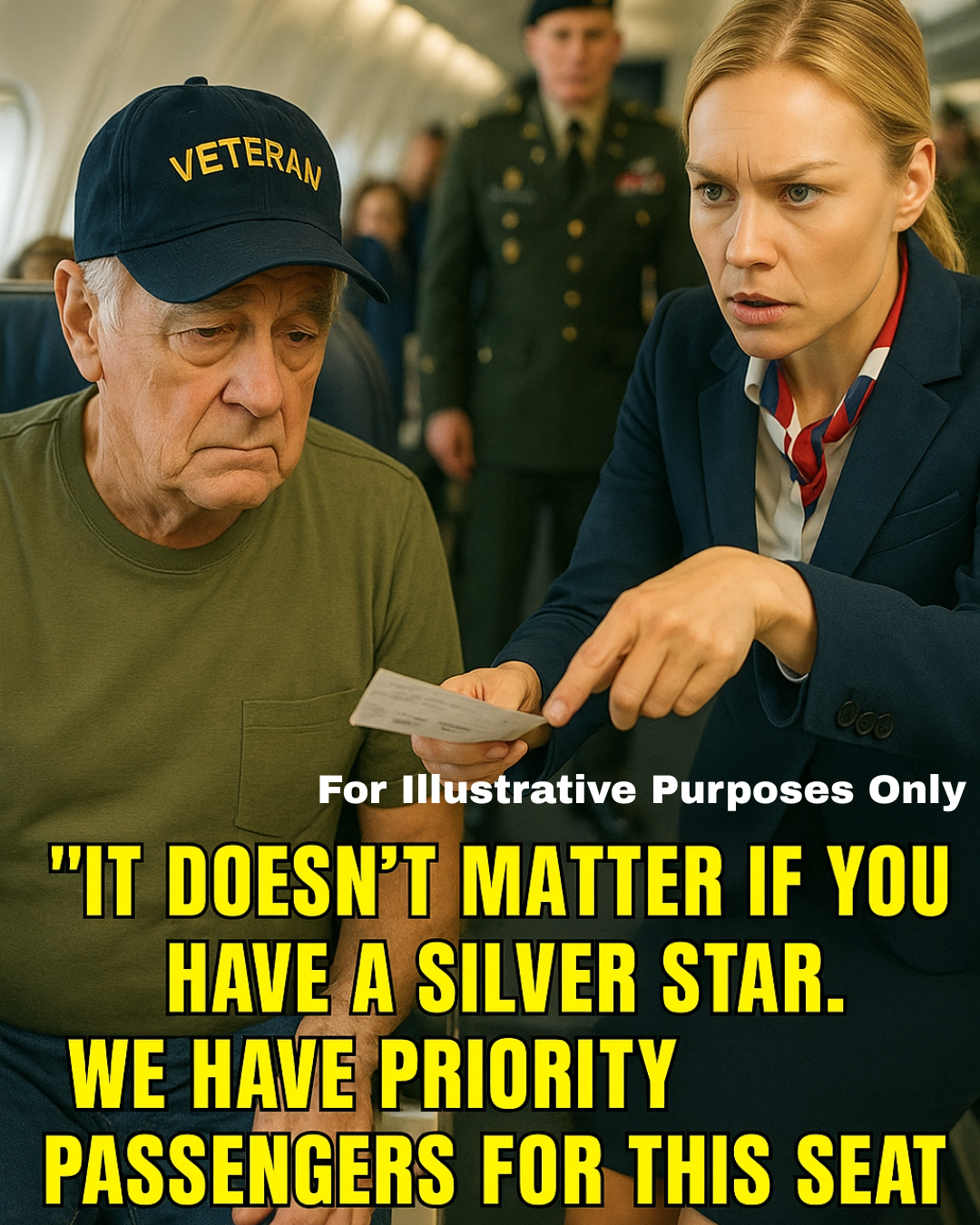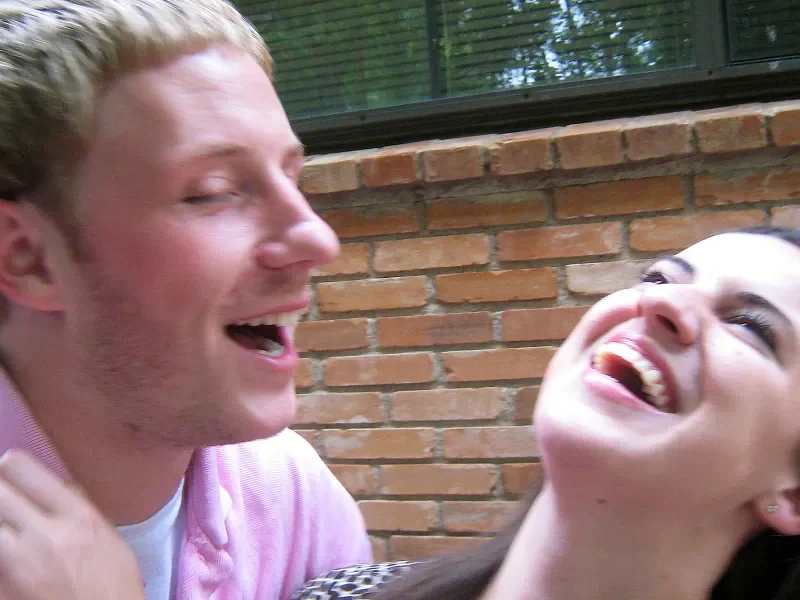They Moved a Silver Star Veteran to Economy. Minutes Later, a Four-Star General Stopped the Plane
Airports are full of stories—some forgotten, some fleeting, and a few that become unforgettable. What happened aboard a domestic flight one quiet Tuesday morning became more than just a logistical misunderstanding—it became a powerful reminder of honor, dignity, and what it truly means to serve.
The incident began without fanfare. Passengers were boarding a typical commercial flight heading from Dallas to Washington, D.C. Among the early boarders was a soft-spoken elderly man, wearing a worn-out cap with the word “VETERAN” stitched in bold letters across the front. His name was Harold Stanton—a decorated Vietnam War veteran and a recipient of the Silver Star, the third-highest military combat decoration awarded for gallantry in action.
Harold moved slowly, his steps steady but hesitant. He clutched his boarding pass with both hands as he located his assigned seat in first class. It had been arranged by his family—a small gesture of appreciation for everything he had endured. But moments later, that dignity was stripped from him.
A young flight attendant, visibly flustered and apparently under pressure to manage priority passengers, approached Harold. Her tone was firm, though not rude.
“Sir, I’m afraid there’s been a mistake. We need this seat for a priority passenger. You’ve been moved to economy.”
Harold looked down, confusion written across his face. He tried to explain that his seat was confirmed, even gesturing to the boarding pass in his trembling hand. But it didn’t matter. The seat had already been reassigned. The flight attendant didn’t recognize the significance of the Silver Star or the weight of the memories Harold carried with him.
With quiet dignity, Harold stood up and began the long walk down the aisle to the back of the plane. Passengers glanced up briefly, most unaware of what was unfolding, some likely assuming it was just a routine reshuffle. But among those on the plane was someone who did understand.
Seated in coach, wearing civilian clothes but unmistakably military in bearing, was General Thomas R. Caldwell—a four-star general and the commanding officer of multiple overseas operations over the past two decades. As Harold walked past, the General recognized the insignia on his cap and the heartbreak in his eyes.
Caldwell stood. His presence, even in civilian dress, commanded attention. Within seconds, the cabin seemed to freeze.
“Excuse me, sir,” he said to Harold. “Why are you heading to the back?”
Harold simply replied, “They needed the seat.”
Without another word, Caldwell turned toward the front of the plane. He didn’t yell. He didn’t demand. He walked with steady resolve. As he approached the front cabin, murmurs rippled through the rows. The flight attendant, startled by the interruption, tried to explain the situation, but Caldwell raised his hand gently.
“This man is a Silver Star recipient,” he said calmly, but with unmistakable weight in his voice. “He earned that seat with more than money. He earned it with blood and courage. You will not move him.”
The attendant, caught between protocol and an unfolding moment of reverence, hesitated. By now, the pilot had been informed. Minutes later, the plane stopped taxiing. The captain came over the intercom.
“Ladies and gentlemen, we’ve paused our departure to make something right. We have the privilege of flying today with a Silver Star veteran. He deserves our respect—and his seat.”
Applause broke out. Not the kind that erupts in excitement, but the kind that follows silence—the kind born from awe, respect, and shared humanity.
Harold was escorted back to first class, this time not by protocol, but by a standing ovation. The young flight attendant apologized softly, and this time, she listened. Caldwell remained standing until Harold was seated. Then he returned to his seat in coach, declining all offers to swap. It wasn’t about luxury. It was about principle.
The flight continued without further delay. But for everyone on board, something had shifted. Conversations sparked between strangers. A few passengers wiped away tears. A young child asked her mother what a “Silver Star” was. And somewhere in the quiet hum of the aircraft, a sense of unity emerged.
In a world that often rushes forward, forgetting those who’ve paved the way, moments like these are reminders. Reminders that courage doesn’t age. That respect isn’t optional. That some sacrifices deserve more than polite acknowledgment—they demand action.
When the plane landed, Harold was met by his family. But this time, he was also greeted by fellow passengers, who waited to shake his hand. One even offered him a handmade card scribbled on a napkin by their child.
General Caldwell quietly slipped away into the terminal. He didn’t need recognition. He hadn’t acted for applause. He acted because it was right.
And while this moment might never make the evening news or trend across social media, for those who witnessed it, it became a defining memory. One that would be shared over dinner tables, retold in classrooms, and passed along in coffee shops as a story that reminds us of who we are when we choose honor over hierarchy.
So, the next time you see a quiet veteran boarding a plane, holding a boarding pass and memories you can’t imagine—pause. Because behind that cap may be a hero. And behind that seat assignment may lie a story worth stopping the plane for.


